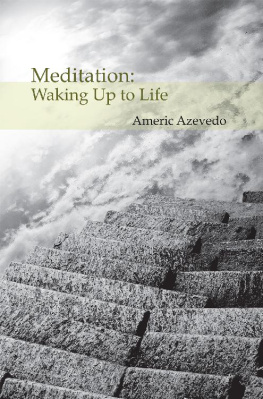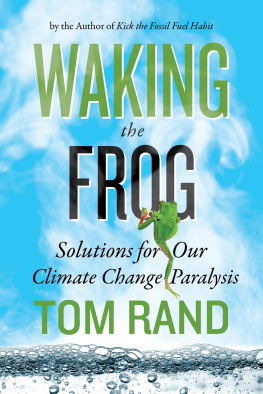Cleary Thomas - Instant Zen, Waking Up in the Present (1994)
Here you can read online Cleary Thomas - Instant Zen, Waking Up in the Present (1994) full text of the book (entire story) in english for free. Download pdf and epub, get meaning, cover and reviews about this ebook. year: 2018, genre: Religion. Description of the work, (preface) as well as reviews are available. Best literature library LitArk.com created for fans of good reading and offers a wide selection of genres:
Romance novel
Science fiction
Adventure
Detective
Science
History
Home and family
Prose
Art
Politics
Computer
Non-fiction
Religion
Business
Children
Humor
Choose a favorite category and find really read worthwhile books. Enjoy immersion in the world of imagination, feel the emotions of the characters or learn something new for yourself, make an fascinating discovery.

- Book:Instant Zen, Waking Up in the Present (1994)
- Author:
- Genre:
- Year:2018
- Rating:3 / 5
- Favourites:Add to favourites
- Your mark:
- 60
- 1
- 2
- 3
- 4
- 5
Instant Zen, Waking Up in the Present (1994): summary, description and annotation
We offer to read an annotation, description, summary or preface (depends on what the author of the book "Instant Zen, Waking Up in the Present (1994)" wrote himself). If you haven't found the necessary information about the book — write in the comments, we will try to find it.
Instant Zen, Waking Up in the Present (1994) — read online for free the complete book (whole text) full work
Below is the text of the book, divided by pages. System saving the place of the last page read, allows you to conveniently read the book "Instant Zen, Waking Up in the Present (1994)" online for free, without having to search again every time where you left off. Put a bookmark, and you can go to the page where you finished reading at any time.
Font size:
Interval:
Bookmark:
 Translated by
Translated byCopyright 1994 by Thomas Cleary. Translated from the original Chinese. N o portion of this book, except for brief review, may be reproduced in any form without written permission o f the publisher. For information contact North Atlantic Books.
Published by
N orth Atlantic Books
P.O. Box 12 ,317
Berkeley, C A 9 4 7 12
Cover illustration, The Sixth Patriarch Cutting Bamboo by Liang Kai, used by permission o f the Tokyo National Museum Cover and book design by Paula Morrison
Typeset by Catherine Campaigne
Printed in the United States o f America by Malloy Lithographing
Instant Zen: Waking Up in the Present is sponsored by the Society for the Study o f Native Arts and Sciences, a nonprofit educational corporation whose goals are to develop an educational and crosscultural perspective linking various scientific, social, and artistic fields; to nurture a holistic view of the arts, sciences, humanities, and healing; and to publish and distribute literature on the relationship of mind, body, and nature.
Library o f Congress Cataloging-in-Publication Data Ching-yuan, 1 0 6 7 - 1 1 2 0
[Selections. English. 1994]
Instant Zen : waking up in the present / translated by Thomas
p. cm.
This book contains translations of general lectures on Zen by Foyan ( 10 6 7 - 112 0 ) P. xii.
Includes bibliographical references.
ISBN 1- 5 5 6 4 3 - 19 3 - 7
1. Zen Buddhism Early works to 1800. I. Cleary, Thomas, 19 4 9 -. II. Title.
B Q 9265.C 4 5725813 19 9 4
294.3 *927 dc20
94-25026
CIP
Introduction... vii
N ot Knowing... 1 5
Saving E n erg y... 25 The Most Direct Approach... 27 Asleep... 28
N o Seeing... 29
In Tune... 3 1
Learning Z e n... 32
Just Being There... 3 5 Tm/oSicknesses... 36 M ind Its e lf... 38
Speaking E ffectively... 42 N aked Realization... 43 Seeing M in d... 45
Discovery...
Show the Truth ... 49
Self K now ledge... 68
Watch Yourself ... 84
E qu a lity... 93
Clear Eyes... 95
Finding Certainty... 96 Ge Understanding... 99 Principle and Phenomena... 10 1 Sitting Meditation... 1 1 1
Appendix: Sowg o f Trusting the Heart... 1 Bibliography... 13 7W
hile we persistently look forward for tom orrows technologies to solve our problems, writes Robert V. Adams, C EO , X erox Technology Ventures, and president, World Business Academy, we often find ourselves simultaneously looking backward, reexamining ancient wisdom on how to understand and enjoy ourselves and others in the process.
As the practical relevance of ancient wisdom to modern problems becomes increasingly apparent, there is an ever greater need to retrieve these essential insights from ages o f cultural overlay, embellishment, and historical decline. Whether we are simply interested in developing the cosmopolitan outlook proper to citizens o f the world, or whether we are also interested in higher philosophy and free thought, today it is no longer plausible to regard world wisdom traditions as the domain of esoteric cultists and fringe intellectuals.
The effort to extract useful knowledge and pragmatic procedures from ancient lore is a hallmark o f the original science o f mind known as Zen. While many sects and cults eventually grew up around the traces o f original Zen, as a rule these spinoffs returned to the very same sort of sentimental religiosity and dogmatic authoritarianism that original Zen eschewed, making them useless, even counterproductive, in the w ay o f Zen mind liberation.
The essence o f original Zen is self-understanding and selfrealization. In classical Zen terminology this development is c a lle d a tta in m e n t o f m a x im u m p o te n tia l an d m a x im u m fu n c tion. This is envisioned as a kind o f liberation, and a kind o f awakening, which the many techniques o f Zen mind art are designed to provoke and develop.
The Zen understanding o f the human condition is that we habitually get ourselves into all sorts o f binds on account o f our vulnerability to the influences o f external and internal changes. The crux o f the problem seems to be a lack o f fluidity, a sort of rigidity in the w ay we view the world and think about it.
In a famous Zen simile, we are like someone in a boat who thinks the bank of the river is moving. Closer observation reveals it is the boat that is moving, resulting in a changing perspective. Similarly, through Zen understanding we can observe the changes in our bodies and minds that cause our view o f the world and feelings for other people to fluctuate from time to time, altering our reactions and behavior. In this w ay we can gain an extra perspective on ourselves and our lives, a more objective point of view, less distorted by unexamined biases and undetected inner currents, and thus master our own potential.
What is the true self that Zen seeks to understand and to realize? To say it is like something, replied one ancient master, would be to miss the mark. A description, after all, is not the self itself; Zen seeks direct knowledge that must be experienced oneself. The use of Zen theory and concentration formulas is to arouse this latent faculty while making it possible to monitor its performance both rationally and intuitively.
M any famous Zen sayings illustrate the seeming paradox o f the self, so near at hand and yet so subtle and inscrutable to the self itself: Though it has long been in use, when questioned, no one knows what it is. What is this? Everyone uses it every day, without being aware o f it. How to become aware o f it, and how to use this awareness as a foundation for mastering its use, is the task o f Zen realization.
It could be said that the object o f Zen, therefore, is to awaken the self and to develop it to a degree o f maturity that is not dictated merely by physical or social needs. This involves inward discovery and empowerment o f an autonomous core o f subtly conscious, intelligent awareness, which oversees and harmonizes the instinctual, emotional, social, and intellectual facets of ones being.
In Zen terminology, this faculty is sometimes referred to as the director by way o f allusion to the function o f the mature self. Referred to in Zen lore as the work, the development of the director is summed up with characteristic precision and beauty in a Buddhist scripture often quoted in Zen literature: It is better to master the mind than be mastered by mind.
Thus self-knowledge is an aim, but it is also a means. Selfknowledge is a means o f deeper self-understanding, and ultimately o f self-realization. In other words, self-knowledge in the Zen process is not pursued by means o f theoretical study but by means o f itself. H ow this is accomplished is the content o f Zen study; when this is done, everything turns into Zen learning.
There are many statements in Zen technical literature designed to orient the learner toward understanding, then experiencing, the real self, or the self apart from socially conditioned views; from which vantage point one then understands the real world through the real self.
You do not need to seek, said one o f the great masters, but you must save yourself; no one can do it for you. The original Zen teachings fostered the utmost in supreme independence and supreme responsibility for oneself. In order to overcome the potential for self-deception inherent in this posture, Zen masters insisted on experiential insight into the most fundamental nature o f being itself; this was called seeing nature, or seeing essence.
Font size:
Interval:
Bookmark:
Similar books «Instant Zen, Waking Up in the Present (1994)»
Look at similar books to Instant Zen, Waking Up in the Present (1994). We have selected literature similar in name and meaning in the hope of providing readers with more options to find new, interesting, not yet read works.
Discussion, reviews of the book Instant Zen, Waking Up in the Present (1994) and just readers' own opinions. Leave your comments, write what you think about the work, its meaning or the main characters. Specify what exactly you liked and what you didn't like, and why you think so.








